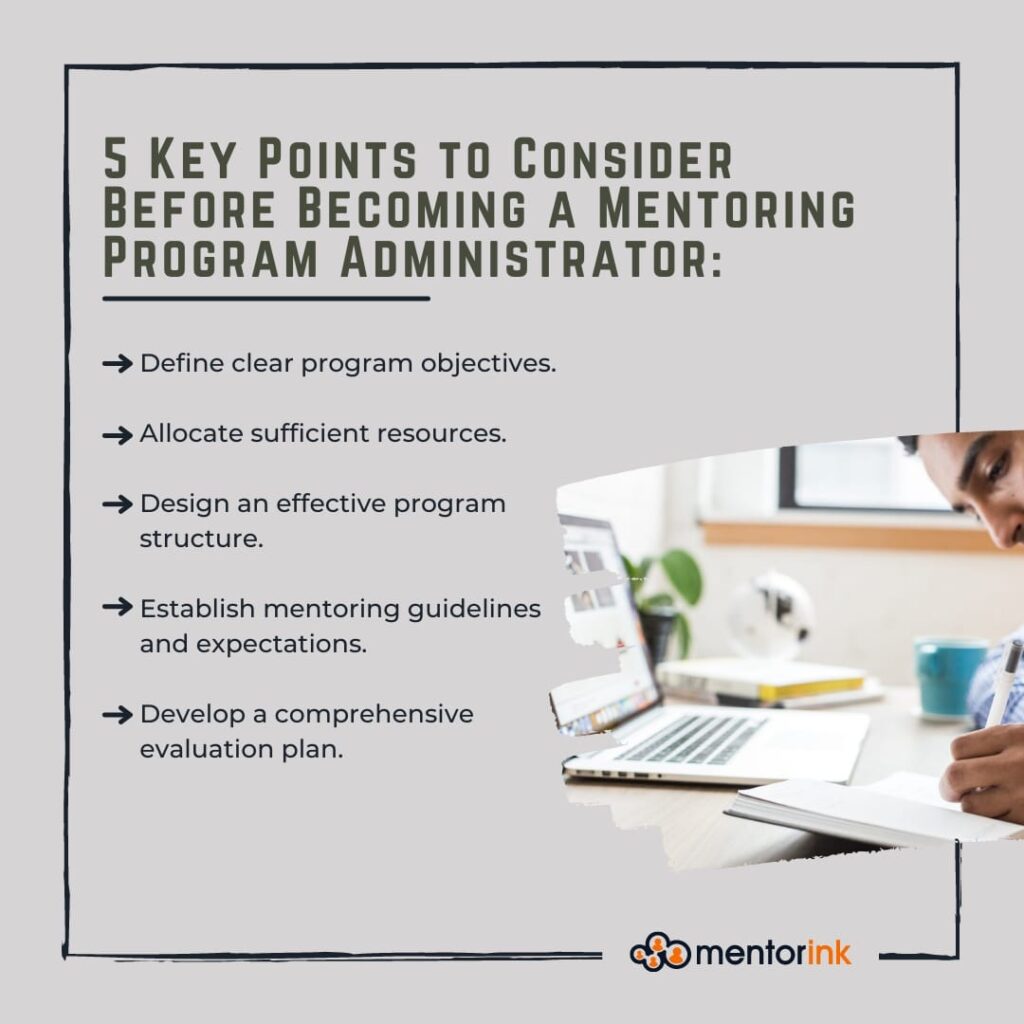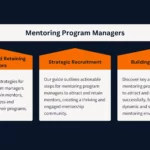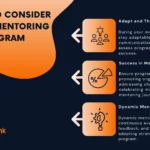
Let’s see the importance of skills of mentoring program manager. Becoming a program administrator for a mentoring initiative can be incredibly exciting. Just the thought of helping people shape their lives and become a better version of themselves is enough to feel better. But this deeply fulfilling job also comes with lots of vital responsibilities to carry out the feat effectively.
If you’re someone who’s pondering whether to accept a proposed admin role for a mentoring project, this article is just for you. We’ll discuss the skills of mentoring program manager you should remember before taking on the responsibility. Without further ado, let’s dive straight into the details.
Here are the 5 key points you should consider before becoming a mentoring program administrator:
1. Purpose of Each Program
Understanding the purpose of the mentoring program is the first and most crucial step to ensure its success. Questions like, “What does this mentoring program accomplish?”, “What are the end goals of this practice?” etc., need careful consideration on your part. Once you’ve identified these elements, you have to effectively implement and enforce them to keep the program on the right track. A predefined start and conclusion can help you carry out your duties relatively well.
2. Audience Awareness
The next step is having a deep understanding of your audience’s goals, skills, background, and mental level. It can be challenging to identify how long a participant will stay with you, as some may need a mentoring program for only a while. On the contrary, others might need extended exposure to achieve their dreams. As the program administrator, you must keep an eye on your audience’s demands and desires, refining your practices.
3. The Differences Between Programs
A keen understanding of the difference between programs can allow a program administrator to cater to everyone’s needs effectively. For example, a person in the sales department may need something entirely different from an employee working in the design department. Keeping these entities separate and treating them as such can result in immense success for your mentoring program. This practice will also promote overall mentoring program effectiveness. and success.
4. The Importance of Communication
Excellent communication skills are one of the most important qualities in a program administrator. More often than not, you’ll have to directly communicate with a participant to clear their doubts or have a general conversation. Since they can be from any background or culture, you need to be open about the many possibilities and mindsets that people carry. An effective communication channel with you can help that individual stay on the same page as everyone else, even if they feel left behind sometimes due to the language barrier.
5. Sense of Responsibility
Your responsibility does not end with just running and terminating a mentoring program successfully. A successful mentoring program needs continuous effort and nourishment. After each program is completed, you should go back and collect feedback in order to detect the areas that need to be improved. Measuring the success of your program and identifying the parts that are not working well are extremely useful to be able to ameliorate your mentoring operations.
Before stepping into the responsibility, make sure that you have people’s best interests at heart as their growth depends on your decisions. Be creative and yearn to find solutions that can significantly change someone’s life.
Conclusion
As rewarding as a career in mentorship is, it also has its demands. If you’ve read this article thoroughly, you now know the main elements that you need to build in yourself before taking up the job. We hope this read will help you become an amazing program administrator.


